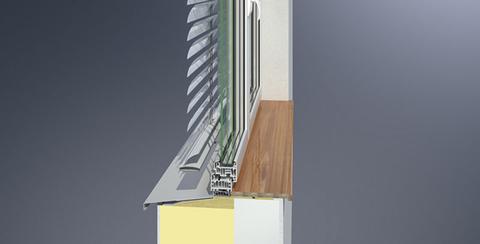Flow. An installation of broken windscreens by Babtistte Debombourg.

In our Western society, where obsolescence is planned, a trajectory is assumed that leads inexorably to broken and discarded trinkets that once had value. Such naked consumption threatens to consume us, whoever “us” might be. At least, that is a flabby strand of thinking expounded by some. It is clear however, that such consumption is widely believed to be unsustainable.
And then there are objects that have a protective function. For example, they save lives by say... preventing the spread of disease. But still, they are designed to be disposable. Should these items be exempt from concerns about what is legitimately allowed to be disposed of, on account of their loftier, more noble purpose?
This is the territory explored in Babtistte Debombourg's installation “Flow” running from tomorrow in Quebec, Canada.
But the framing of the question through Mr Debombourg's work, has at it heart, a troubling point of reference. We are told in the accompanying literature to the installation that the glass windscreens, from which the installation is made are:
“ ...broken, discarded, ignored objects that take the place by storm, rebel and attack us.”
The19th century British art critic, John Ruskin, dealt with this line of thinking in his essay Modern Painters (1843–60) where he coined the notion of the “Pathetic Fallacy”. He spoke of the pitfalls of second-rate poets ascribing human qualities to inanimate objects.
If we can swallow this lump, and Ruskin kindly gives us the lubricant of “artistic license” to do so, Babtistte Debombourg's work raises some interesting questions on consumption. Stick with it if you can.
Showing at the Centre d’Art Actuel l’Oeil de Poisson from 03.05 to 02.06.2013, 541, rue de Saint Vallier Est, Quebec, Canada.















